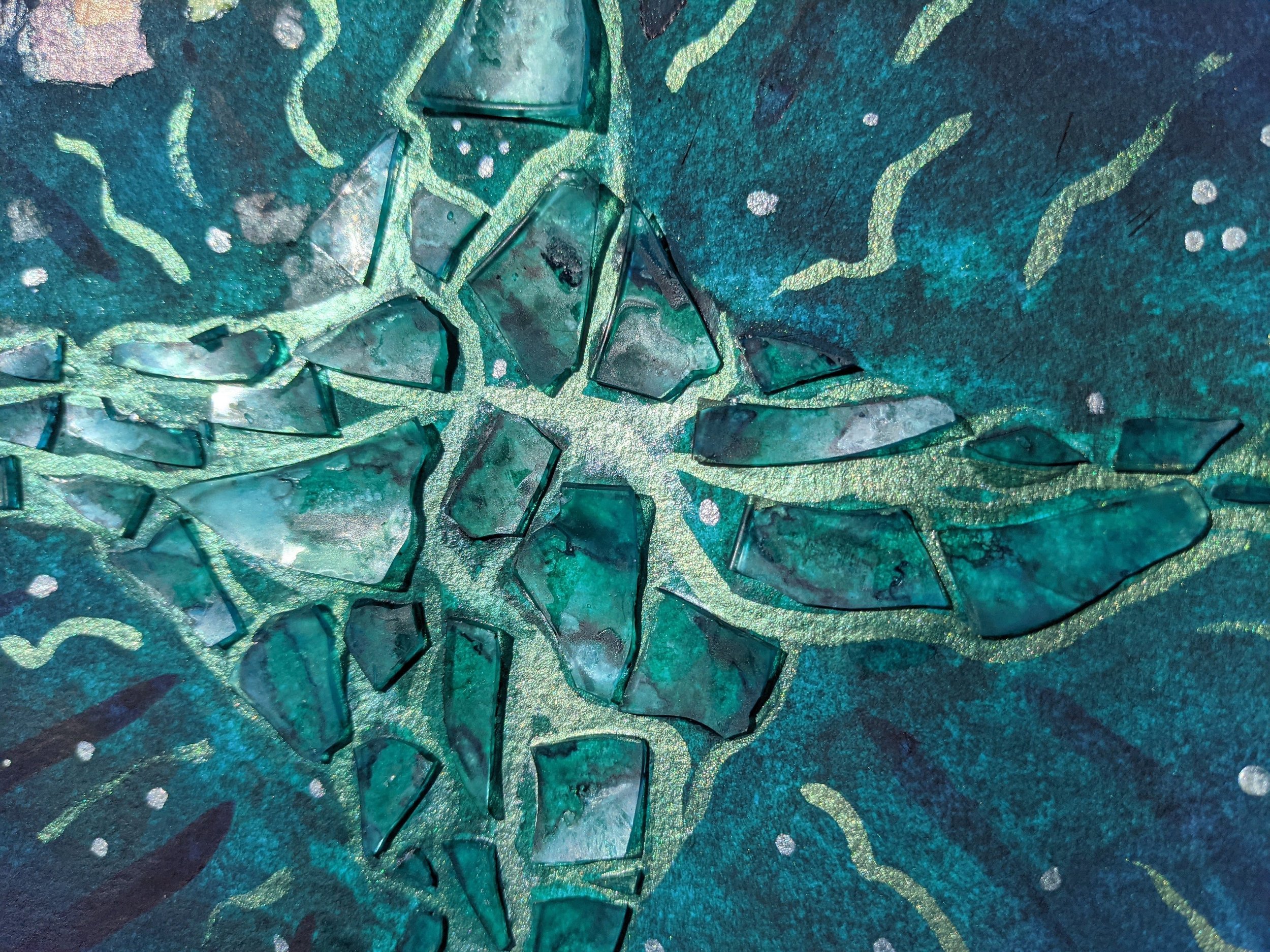Gradients
AUTUMN 2021 ISSUE
Gradients
Gradients—referring to the relationships between health and social inequalities—are present across healthcare. These phenomena are not new and have been used to model a number of public and global health issues, including the distribution of vaccinations, access to medicines, and disease distribution, to name just a few. Here the KHR explores how social and health inequity lie at the heart of the struggle for better health.
Image Credit: Sophie Buckely
Foreword
“The gradient addresses one of two common misconceptions about health inequalities, namely that it is really about poverty. Poverty does damage health but so, too, does position in the social hierarchy and the resulting inequalities.”
Prof Michael Marmot writes for the Keppel Health Review on why the social gradient still matters and how inequity still plays a role at determining health outcomes in the heart of our communities.
Featured Contributions
Pallavi discusses the ways in which Western approaches to mental healthcare fail to recognise the nuances of immigrant communities, cultures, and conceptions of self.
Prof Michael Marmot writes for the Keppel Health Review on why the social gradient still matters and how inequity still plays a role in the determining health outcomes in the heart of our communities.
Oluwaseun reflects on the black maternal mortality crisis in the UK, arguing that to end this injustice we must all evaluate the presumptions and misconceptions that lie behind these statistics and within ourselves.
Gwen features the works and journey of artist, photographer, and entrepreneur, David. David advocates for physical and mental wellbeing to support the health of communities.
Essays and Opinions
Matthew argues that rapid cancer diagnostic pathways must be equally and proportionally accessible to all patients in order to close the deprivation gap in cancer survival rates.
Rishabh breaks down the different barriers to care and explains how surrounding resources can influence surgical outcomes.
Kristen argues that a battle for political power and control lies behind the most recent abortion ban in Texas, and considers the implications of this for women and underserved populations worldwide.
Aishwarya reveals the outcomes of a research study conducted in South Sudan, shedding light on the humanitarian response programme concerning COVID-19 and the floods, and their impact on women.
Tamzin Reynolds explores the consequences of a world designed for the male body on women’s health outcomes.
Snehal discusses the harsh realities of the COVID-19 pandemic that are often overlooked and underreported. Reflecting on the death of a family member, Snehal demonstrates the dire need for increased availability of vaccines and provision of healthcare services in low- and middle-income communities.
Page argues that the rhetoric surrounding universal health care often plays into fears and misconceptions about a lingering socialist threat in the US, preventing the implementation of a more equitable and effective healthcare system.
Dhruv illustrates why doctors often do not reflect the populations they serve through the stories of two medical students.
Maria discusses the impact the climate crisis has on our global ability to attain the most fundamental human need: access to proper food.
Clive and Anandita discuss how healthcare inequities across India provide fertile ground for unregulated medical practice, contributing to growing antimicrobial resistance in rural populations.
Clare discusses the impact of low wages on the care sector in the UK and how a pay increase will not only help the social care staffing crisis, but also local economies.
KHR x COP 26 Special Issue

KHR x COP 26
Read our special issue on COP26 including an interview with Prof Andy Haines, profiles of frontline workers, and a statement for change from a Marshall Scholars’ climate action group.
Creative
Wellness
This poem is about the poet’s grappling with their gender presentation as a non-binary transgender person, particularly their decision to go through hormone replacement therapy or not. While large biological changes can be intimidating and frightening, they’re equally natural, beautiful, and transformative.
Oluwaseun uses poetry to describe the frustrations and exhaustion that comes with being a frontline healthcare worker despite their bravery and commitment being celebrated by others.
Po Ruby speaks to Becki, a multimedia artist who uses creativity as a way to channel difficult thoughts and emotions into something positive.
Emily reflects on the experience of working as a healthcare professional serving rural communities. This poem draws on the inspiration from colour and its contrast to the surrounding setting.
Through photographs Franca shares her own day-to-day experiences working as a non-local Research Assistant in The Gambia.
In this piece, Emma Roy explores the intersections between chronic illness and body image.
In this article, Cherie draws on a provocative idea: insects as part of our diet? She navigates the intersections of culture, sustainability, and nutrition to help change our minds.
Kristen explores the expanding science behind one of our favorite forms of skincare, sunscreen, and shares her recommendations on the ones to get and ones to stay away from.
In this article, AJ reflects on his mindfulness practice and the changes it has undergone from the traditions it hails from.
Akshay shares his love of companion animals with us and enumerates the (evidence-backed) benefits of having pets.
Long Reads


Can the data speak for itself? Tackling inequalities and exclusions in statistical research
By Teresa Lee
Culture
In the first part of their essay series on cultural psychology, Kate and Mohammad draw attention to Dr Derek Summerfield’s critique of Western trauma narratives and reveal the limitations in our approaches to global mental health.
In the second part of their essay series on cultural psychology, Kate and Mohammad take a closer look at the origins of international aid group Médecins Sans Frontières and discuss future directions for the continuing decolonisation of global mental health.
In advance of its screening at the Global Health Film Festival (25 Nov–5 Dec), Megan Greenhalgh reviews The Cost of Cobalt—an exposé of how the world’s “insatiable appetite for cobalt” is causing untold damage in mining communities in the DRC.
In advance of its screening at the Global Health Film Festival (25 Nov–5 Dec), Frieda Lurken reviews Hot Docs winner Dear Future Children—an intimate portrait of three young activists and the struggles they go through to fight for what is important to them.
A dog-nostic dilemma? Micah Fineberg reviews a recent episode of the Revisionist History podcast.
Public health gains a new tool in the fight against malaria. Charles explores the opportunities afforded by expanded production and mobilisation of the RTS,S/AS01 vaccine, as well as the inequities threatening to impede eradication efforts.
The new pandemic sheds light on an old foe. Page summarises the World Health Organisation's 2021 Global Tuberculosis Report and discusses disparities in vaccine advancement and equity.
In advance of its international premiere at the Global Health Film Festival (25 Nov–5 Dec), Rosalie Hayes reviews Medicine Man: The Stan Brock Story which recounts the remarkable life of Stan Brock and his founding of the charity Remote Area Medical.


































